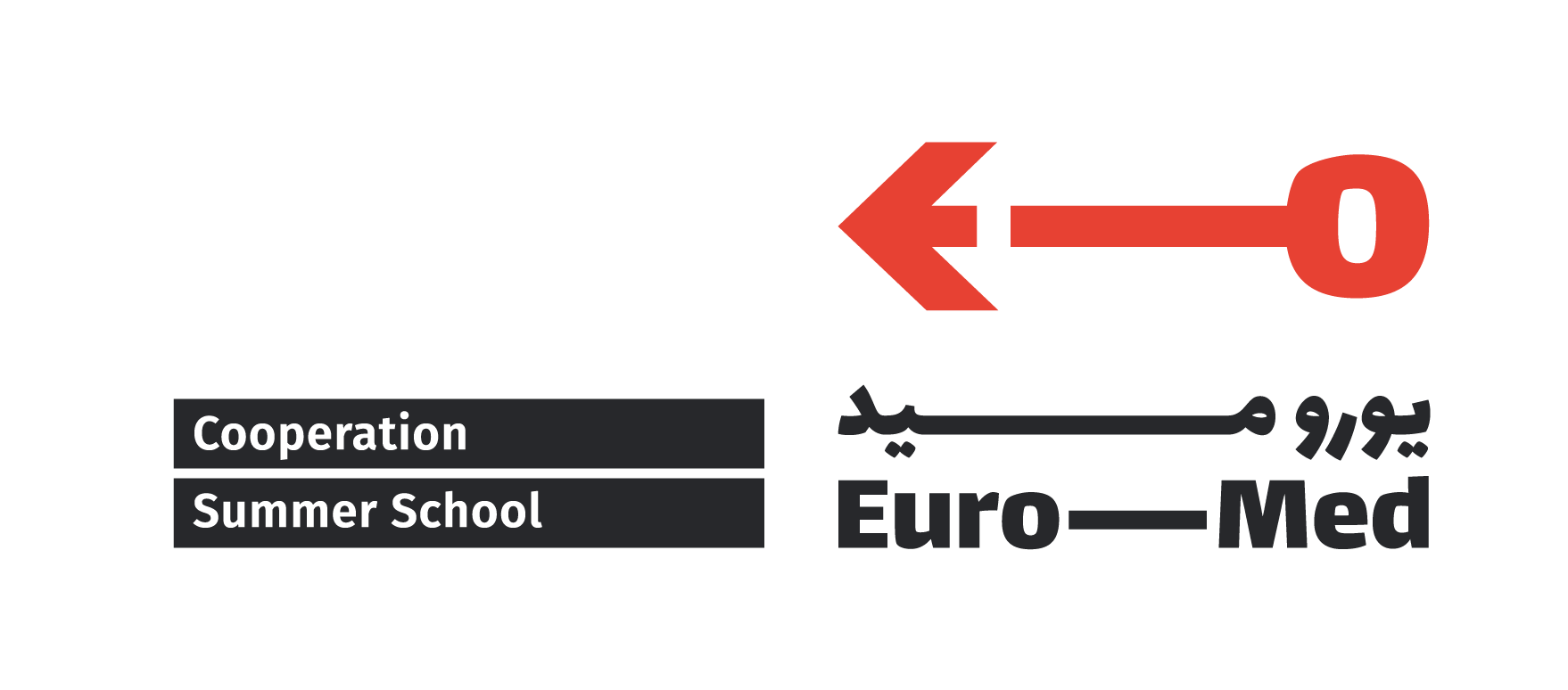2016 Edition
Euro-Mediterranean Cooperation Summer School 2016 edition

The second edition took place from the 27th June to the 1st of July 2016 and it has been hosted by the University of Cagliari, Sardinia (Italy). It was attended by 28 participants representatives of public bodies, freelancers and consultants from all over the Mediterranean are and beyond (France, Greece, Switzerland, Malta, Turkey, Egypt, Morocco, Italy, Spain, Tunisia and Lebanon). The most represented countries were Italy, Spain and Lebanon .
Participants came from different and important international, European and local institutions: CEEBA (Egypt); Lebanese Center for Energy Conservation (Lebanon); Tripoli Port Authority (Lebanon); Fondazione di Sardegna (Italy); Chambre de Commerce et d’Industrie de Sfax (Tunisia); Fundacion Dieta Mediterranea (Spain); Mersin Chamber of Commerce and Industry (Turkey); Mediterranean Wetlands Initiative (Spain); University of Malta; Ente Acque della Sardegna (Italy); American University of Beirut (Lebanon); Chemaber of Commerce of Malaga (Spain); Barcelona Chamber of Commerce (Spain); Associazione Anton Stadtler (Italy); FAO; Assemblée des Ràprésentants du Peuple (Tunisia); Aethon Engineers and consultancy (Greece); Chambre de Commerce et d’Industrie de Marseille (France).
During the Summer School activities the partecipants have developed n°5 drafts of project ideas focused on 4 main topics: Business and SMEs; Social Inclusion; Education, Research and Innovation; Environment.
The training program was split in the following modules/activities:
- Main EU financial instruments for the Euro-Mediterranean regions- The ENI CBC MED programme
- Project design (Logical Framework Approach) and management (Project Cycle Management)
- Parallel laboratory session: development of project ideas
- Elaboration of Project ideas presentation and first evaluation of the project proposals
- “P2P- Partner to Partner meetings” -networking session
Overall the participants have assessed positively both the course management and teaching that the organization as a whole.

